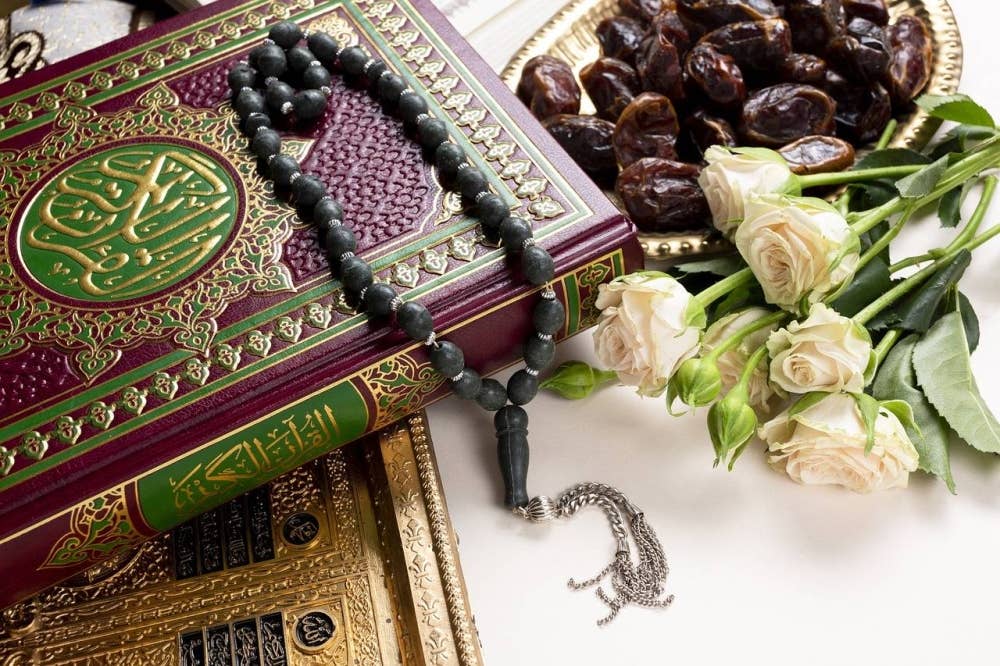Nuzul Quran - Its history, significance and beauty of it all
ILI LIYANA MOKHTAR08 Apr 2023 09:01am

Inside the Quran, there are a collection of verses that covers every aspect of life, from religion to science - FILEPIC
What is Nuzul Quran?
In simple terms, Muslims today celebrate the day when Prophet Muhammad SAW first received the revelation of the first verses of the Quran, which is verse 1 to 5 of surah Al-Alaq that emphasizes reading.
Nuzul or Nuzuool means the descent of something special thus Nuzul Quran means the descent of the holy book of Quran from heaven to earth.
According to Islamic history, this event took place on a Friday night during Ramadan (the 17th) while the Prophet Muhammad was in the Hira cave.
The revelation was then continued in stages until the contents was completely revealed as the one we read today.
The Quran was sent to the Prophet through the angel Jibreel for a period of 23 years, 13 years in Makkah and 10 years in Madinah.
Inside the Quran, there are a collection of verses that covers every aspect of life, from religion to science.
Every Muslim believes that Allah has laid down the solution and guide to life in the holy book.
The Quran says: “and We have revealed the Book to you explaining clearly everything.” (16:89)
To understand the significance and importance of the Quran, the Prophet has been recorded as saying :
تَرَكْتُ فِيْكُمْ أَمْرَيْنِ لَنْ تَضِلُّوْا مَا تَمَسَّكْتُمْ بِهِمَا : كِتَابَ اللهِ وَ سُنَّةَ رَسُوْلِهِ
“I have left behind two things, you will never go astray as long as you hold fast onto them ie. the Quran and Sunnah” (Sahih Lighairih, by Imam Malik, al-Hakim dan al-Baihaqi)
As a child, I remember being sent for Quran classes by my parents, constantly dragging my feet after a long day at school.
Quranic teachers were known to be strict and learning to recite it in the correct way, with proper tajweed (the set of rules governing the way in which the words of the Quran should be pronounced during its recitation) and tarannum (a technique to beautify and curve the tone of voice, in a certain tempo and rhythm when reading the Quran) seemed difficult and as a child at the time you unable to completely grasp the deeper meanings behind verses.
If you’re familiar with the Quran, the shorter verses placed at the end pages, are what Muslims have memorised by heart. As a young child of about four or five, these verses are constantly being recited to you for you to memorise, and are recited as an introduction to your first lessons in how to pray and as protection before you go to bed.
It is something that is so ingrained in your memory and becomes an integral part of your identity as a Muslim.
For those still struggling with memorising and learning the longer verses of the Quran and who are not clerics, or ulama or imams, these verses are used in our daily obligatory prayers.
In Ramadan, some Muslims who prefer shorter terawih prayers during the nights will find mosques where the imam will read these shorter surahs rather than the entirety or parts of the longer surahs found in the earlier parts of the Quran.
From my limited knowledge, the longer verses in the earlier section of the Quran, are verses revealed to the Prophet in Medina.
In 622AD, upon divine guidance, Prophet Muhammad decided to leave his birthplace of Makkah for the city of Madinah.
He and his followers faced constant persecution in Makkah from people opposed to his message and cause, with his life threatened.
He received word from Madinah that the city would welcome him and his followers. His migration is commemorated as the Hijrah and marks the first year in the Islamic calendar.
Now as an adult, I have re-started my journey into learning in which I find to be more fulfilling and significant as I can finally grasp the deeper meanings behind each Surah, and how the holy book is actually a guide to life itself.
On this significant day, I would like to share a surah I often find comfort in during difficult times and situations. I believe that the message that it imparts is useful for Muslims and everyone else.
Surah al-Inshirah (Expansion)
In the name of God, Most Gracious, Most Merciful
Did We not relieve your heart for you,
And remove the burden that weighed so heavily on your back,
And raise your reputation high?
So truly where there is hardship there is also ease;
Truly where there is hardship there is also ease.
So when you are free work on
And direct your requests to your Lord.
(Translation by M.A.S. Abdel Haleem)
According to Egyptian scholar Shaykh Muhammad al-Ghazali, “Prophet Muhammad was born into a society that was living in darkness and ignorance.” This surah sought to reassure the Prophet that Allah would always be there to guide him.
On the occasion of Nuzul Quran, especially for those facing life’s difficulties, whether you’re trying hard to make ends meet or struggling in your studies, at work, at life - continously trying hard but can’t seem to find a solution; remember that God is with us to overcome the difficulties, that ease can be found even in the despair, and that we must look after each other.
If you are new to the Quran, Ramadan can be a good start to open and explore its contents and learn from it.
If you are an advanced reader, Ramadan is an opportunity to increase and expand your knowledge of it.
Let us be reminded today of the lessons that the Quran has taught us by learning how to recite it and internalising its meanings to embody its values in our daily lives.
Let today be a reminder to practice gentleness and kindness in all that we do through our thoughts, actions and speech.
I apologise if this piece seems faulty or superficial as I am not an Islamic scholar nor a teacher by any means. But I do believe that the Quran speaks to all of us in our own ways, and that is the beauty of it.
Download Sinar Daily application.Click Here!














